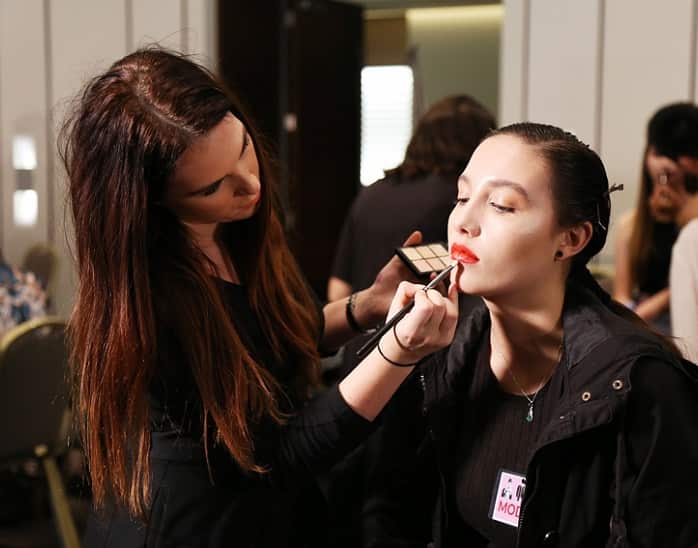Unmasking the Mystery: Makeup, Make-up, and Make Up
Related Articles: Unmasking the Mystery: Makeup, Make-up, and Make Up
Introduction
In this auspicious occasion, we are delighted to delve into the intriguing topic related to Unmasking the Mystery: Makeup, Make-up, and Make Up. Let’s weave interesting information and offer fresh perspectives to the readers.
Table of Content
Unmasking the Mystery: Makeup, Make-up, and Make Up

The world of beauty and style is often filled with nuances and intricacies, and even the most fundamental terms can spark confusion. One such instance is the seemingly interchangeable use of "makeup," "make-up," and "make up." While these terms might appear synonymous at first glance, understanding their subtle differences is essential for effective communication and maintaining a professional image.
The Evolution of "Makeup"
The term "makeup" is the most widely accepted and preferred spelling in contemporary English. It is a noun that refers to the cosmetics and techniques used to enhance or alter one’s appearance. This term has a rich history, dating back to ancient civilizations where people used pigments derived from natural sources for adornment and ritualistic purposes.
Over time, "makeup" has become a staple in various cultural contexts, encompassing everything from everyday routines to theatrical performances and special occasions. It has evolved into a multi-faceted industry, offering a vast array of products and techniques to suit diverse needs and preferences.
"Make-up" – A British Influence
The spelling "make-up" is primarily prevalent in British English. It follows the same definition as "makeup," referring to cosmetics and their application. This spelling is a remnant of the historical use of the hyphen, which was common in British English to indicate compound words.
While "make-up" remains a valid spelling in British English, its usage in American English is less common. The preference for "makeup" in American English has led to a perception of "make-up" as a more formal or archaic spelling, although it is still considered correct.
"Make Up" – A Different Meaning Altogether
The term "make up" is a verb phrase, distinct from the noun forms "makeup" and "make-up." It signifies the act of creating or inventing something, often in the context of stories, excuses, or reconciliation. For example, one might "make up a story" or "make up with a friend."
This distinction is crucial to avoid misinterpretations and ensure clear communication. Using "make up" when referring to cosmetics can lead to confusion and potentially undermine professionalism.
Why Understanding the Difference Matters
While the difference between "makeup," "make-up," and "make up" might seem minor, it has significant implications:
- Professionalism: In formal settings, such as academic papers, business communication, or journalistic writing, using the correct spelling demonstrates attention to detail and enhances credibility.
- Clarity and Consistency: Maintaining a consistent spelling within a document or communication ensures clarity and avoids potential misunderstandings.
- International Communication: Understanding the regional variations in spelling is essential for effective communication with audiences from different parts of the world.
Frequently Asked Questions
Q: Which spelling is "correct"?
A: "Makeup" is the most widely accepted and preferred spelling in American English. However, "make-up" is still considered correct in British English.
Q: When should I use "make up" instead of "makeup"?
A: "Make up" should be used when referring to the act of creating or inventing something, not when referring to cosmetics.
Q: Is it acceptable to use "make-up" in American English?
A: While "make-up" is less common in American English, it is not considered incorrect. However, "makeup" is generally preferred.
Tips for Effective Communication
- Context is Key: Consider the audience and the context when choosing the spelling.
- Consistency is Crucial: Maintain consistency within a single document or communication.
- Research and Verify: If unsure, consult a reputable style guide or dictionary.
- Embrace Clarity: Aim for clear and unambiguous communication, regardless of spelling preference.
Conclusion
The seemingly interchangeable terms "makeup," "make-up," and "make up" hold distinct meanings and spellings. Understanding these differences is crucial for effective communication, professionalism, and maintaining a consistent style. By embracing clarity and adhering to accepted conventions, individuals can enhance their written and spoken communication, fostering better understanding and conveying a more professional image.








Closure
Thus, we hope this article has provided valuable insights into Unmasking the Mystery: Makeup, Make-up, and Make Up. We appreciate your attention to our article. See you in our next article!
